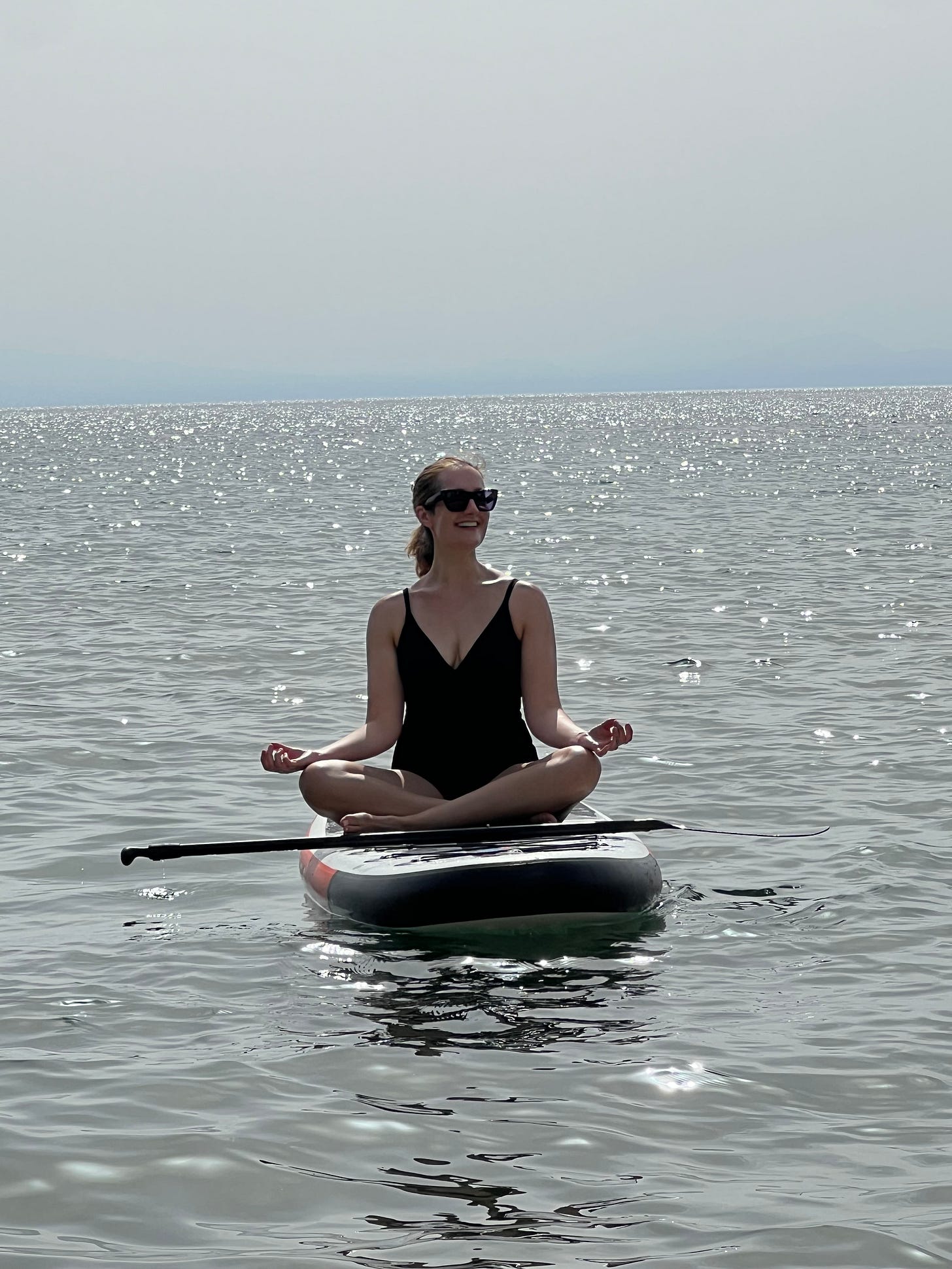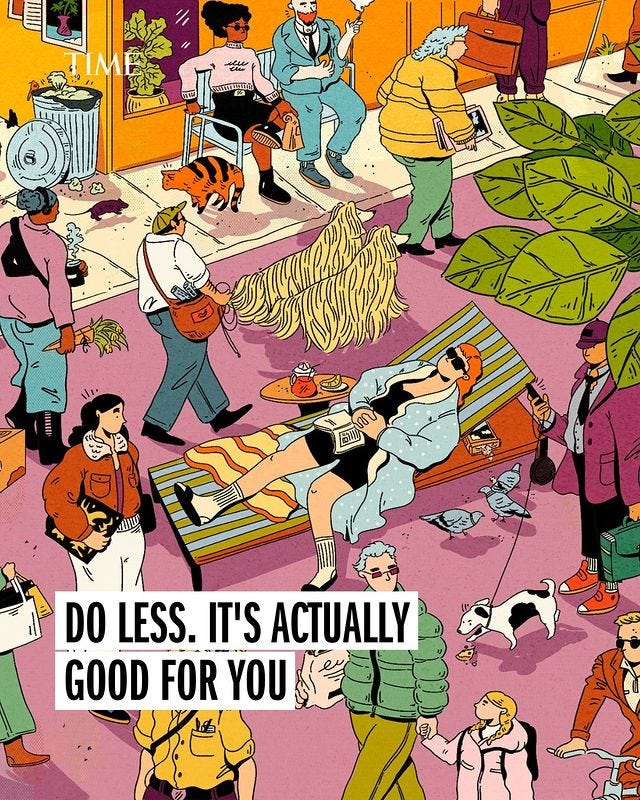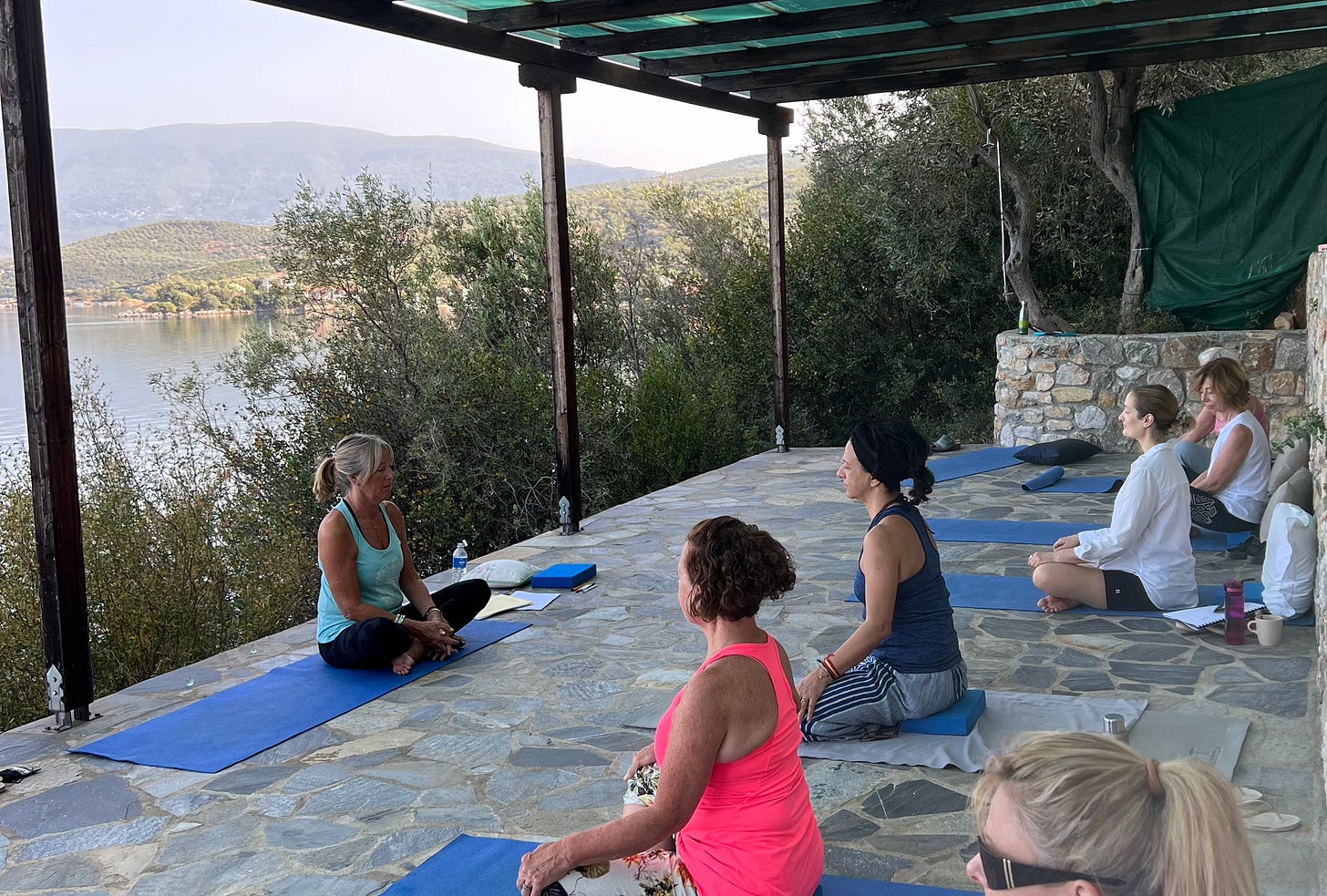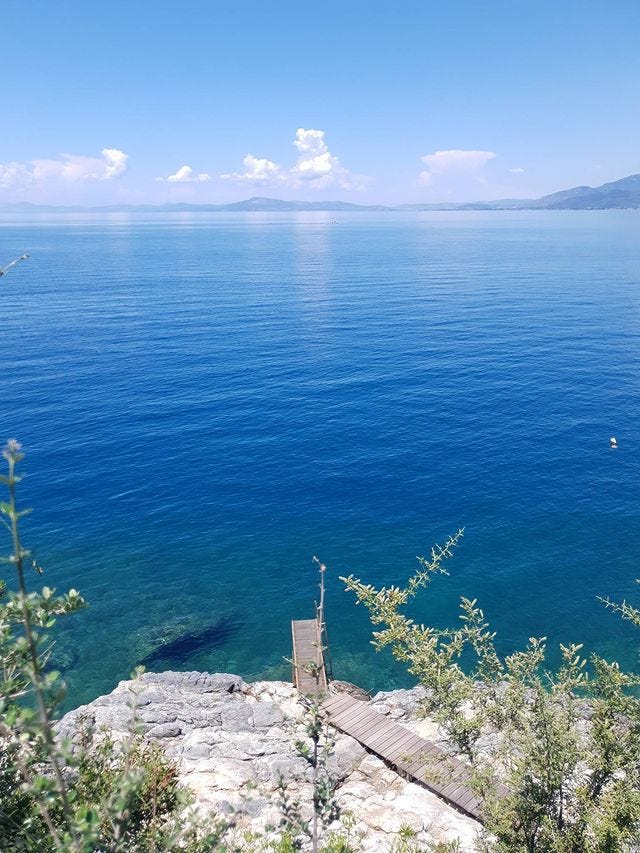Last week I took my own advice about rest and went to Greece for an energy healing retreat.
Wait, come back!
I know that sentence won’t endear me to anyone who spent last week dodging the rain in Britain. But bear with me because we can all benefit from what I learned.
It was five days of learning about the chakras and doing qigong, outside in the most beautiful setting. As Ioannis, the man running the qigong sessions, took us through the movements, everyone else in the group seemed to be in the moment, breathing in sync and feeling the energy flow through them.
Meanwhile, my mind was whirring: “I wonder what I’m missing in my inbox. Oh god, I never got back to that person about that thing. Why am I so disorganised? Is it sports day next week? Can I get out of that meeting to be there? Am I a terrible mother for swanning off to Greece on my own during term time? I should focus on my breathing and that lovely view of the sea. When do we get breakfast? Why is no one else hungry? Gah, that’s a massive ant… do Greek ants bite?”
I kept losing track of when I was meant to breathing out and breathing in, and felt jittery and frustrated, keen for it to be over.
Eventually, Ioannis glanced at me and said: “If you are used to moving quickly through life, then slow movements might actually create more stress.”
Could he read my mind? Probably! He does appear to be some kind of energy wizard.
According to this Time article about “relaxation anxiety”, it’s very common. We check emails at the weekend, ruminate about worries during our yoga class, and can never focus long enough to read that novel - because we are “polluting” our rest time.
Ioannis’s advice? Slow down but - importantly - don’t slow right down if you’re not used to it. Just make an effort to live and move a bit more slowly than you do now.
This goes against everything I stand for. I walk quickly, think quickly and feel extremely annoyed with anyone who organises a meeting that could have been an email, or takes a minute to say something that should take five seconds.
As a journalist, my life is all about deadlines, which are busy and stressful by their very nature. Being self-employed, I don’t get sick pay or holiday days, so I’m very aware that time is money. Slowing down is not an option.
But the evidence is pretty clear that living in a constantly stressed state causes inflammation and suppresses immunity, increasing the risk of everything from a sniffle to cancer.
How to break the busyness cycle? Here are 4 ways (and please do let me know if you’ve found others)…
Leaving early
I don’t mean a French Exit (although those are also a good idea in my opinion). I’m talking about leaving early when you’re on your way somewhere. If you always leave just enough time to get to meetings, school pick-up and social occasions, you will be constantly rushing and stressed.
This advice came from Annie Penny, who was running the chakra sessions on the retreat. She said that leaving earlier for appointments and moving more slowly to get there can hugely reduce your overall stress. This sounds like such a simple thing. But it struck a chord with me since, while I’m hardly ever actually late, I always arrive in the nick of time, having had a stressful rush to get there.
It’s partly because I see travelling time as dead time, so I try to minimise it. So if I reframe it as managing my energy, improving everything from my productivity to my interactions with other people, then maybe I can make it happen.
Unclenching
You might have read the above thinking: “Why would I move slowly on my way to a meeting? What a giant waste of time.” I hear ya!
But moving more slowly actually de-stresses you. We tend to think that our body is responding to what our brain is telling it. Actually, our brain takes more information from what our body is doing than vice versa.
Moving in a relaxed way tells my body and brain that I’m safe and all is well, rather than my usual head-down walk-run, which activates the stress response. Similarly, if your jaw, shoulders or brow are tense and clenched, then your brain senses danger. It may feel counterintuitive, but start with the body, and the mind will follow.
Grounding
There is an increasing body of research about the benefits of grounding (ie. getting your bare feet or hands directly on the surface of the earth) for reducing inflammation and improving immunity. If you don’t have grass or earth directly outside your home, then apparently it works on concrete and paving stones, too. Last week, I had my bare feet on the ground every morning - which is clearly far easier to do when you’re on holiday in a warm country, but I’m going to try to keep it up.
Sleeping
OK yes, we all know about the benefits of sleep, but moving out of the cycle of relentless stressy busyness requires you to be well rested so please don’t put it on the back-burner. You already know what you should be doing to prioritise sleep, but here’s a quick reminder:
Have a regular schedule of going to bed and getting up around the same time.
Keep your bedroom cool, and as dark as possible.
Avoid caffeine after lunch.
Switch off screens at least an hour before bed.
Don’t eat a big meal, or drink alcohol, at least two hours before bed.
Create a wind-down routine, which could involve a bath or reading a book.
Keep lighting soft in the evening (think ‘dimmer after dinner’).
Get outside as soon as possible after waking, to reset your circadian rhythm.
Maintaining the healthy glow and good intentions of your holiday self is always a challenge when returning to normal life. But hopefully these changes are small enough to be doable. Let me know how you get on.
If you’re interested in learning more about the retreat, it was at Dolphin’s Leap, and I highly recommend it.
This week I’m…
Celebrating International Yoga Day on Friday with a sun salutation, sadly not on a sun deck overlooking the Pagasetic Gulf, but in my East London back garden. Yoga calms my mind, stretches my body and reduces my risk of breast cancer recurrence
Still laughing about the shoot that I did with Jonathan for a feature about gender differences in blood glucose levels for The Sunday Times Magazine
Quite obsessed with the razor blade glass illustration on this feature about drinking in the New York Times Magazine. If you’re looking for an incentive to finally cut back/quit, then this might be it…








Making an effort not to be rushing to things has been a revelation for me. The sense of calm I get from not rushing impacts all of the rest of my day in such a positive way. It’s 💯 an act of self-care, Retreat sounds delicious (having also just been to Greece, making peace with ‘Greek time’ - aka that rather slow and lovely pace - was a huge challenge for lots of people in my group, it took at least 3 days for them to start to unwind into it).
I love your writing and these articles, they always resonate! I often feel that chemo has made me an even worse late person than I already was. Must try harder at all of these. Thank you for sharing!